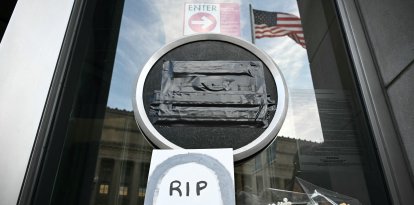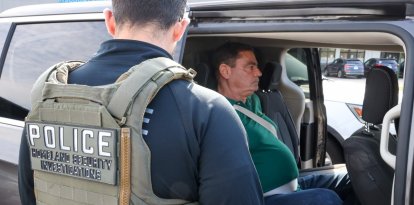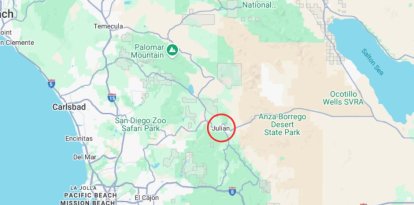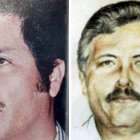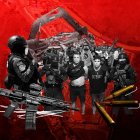Alarm over narco-terrorism on southern border after death of Texan rancher: 'It is a terrorist attack'
Authorities called for extreme caution while experts warn about the exponential increase in improvised explosive devices (IEDs): between 2020 and 2021 three were seized, and in 2023, 1,681.
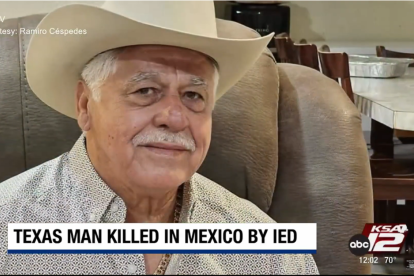
Antonio Céspedes Saldierna, victim of a drug explosive in Mexico
"I urge all Texas farmers, ranchers, and agricultural workers who travel to Mexico or operate near the border to exercise extreme caution," Texas Agriculture Commissioner Sid Miller urged in recent hours. The reason: the growing threat from cartels on both sides of the border line, and narcotics, a common weapon.
Miller's warning comes after the death of a Texas rancher in Tamaulipas, Mexico, due to an explosive linked to armed gangs in the area. The Texas official said the case exemplifies the "growing threat posed by cartel activity along our southern border."
The deceased was identified as Antonio Céspedes Saldierna, 74. He was also killed along with Horacio Lopez Peña, whose wife, Ninfa Griselda Ortega, was hospitalized. Local media dated the explosion on Jan. 31 and placed it in the city of San Fernando. Céspedes worked in both Mexico and the United States.
Warnings from the authorities
Just days before the deaths of Céspedes and Pena, the government of Tamaulipas had warned several municipalities and ejidos, including where the incident occurred, that armed gangs had left "explosive materials and substances on the roads and agricultural fields that represent a latent risk to citizens."
With the warning came recommendations: "Do not move, do not touch, do not manipulate." In addition to moving away from suspicious devices, they asked to report them to law enforcement.
Echoing that warning, the U.S. embassy in Mexico asked to avoid the area. "IEDs (Improvised Explosive Devices) are being increasingly manufactured and used by criminal organizations in this region," it warned in a statement. To its own employees, it ordered them to avoid the area during daylight hours and dirt roads.
Miller himself, in Texas, issued his own set of recommendations for local residents:
"Avoid dirt roads and remote areas, refrain from touching unfamiliar objects that could be explosive devices, limit travel to daylight hours, stay on main roads, and avoid cartel-controlled regions. Our agriculture family is the backbone of Texas, and we must do everything we can to protect it."
Cheap, 'safe' and increasingly frequent
"IEDs can be made cheaply and do not require a great deal of technology or complex materials," explains the specialized site InSight Crime.
In addition to the economic advantage, this weapon previously reserved for war zones is a new favorite for criminals because it reduces exposure during acts of violence, because it does not require the perpetrator's presence at the time of detonation.
"They are often used to intimidate extortion victims, block roads and hinder the passage of rival groups or state forces, as well as to bomb specific targets, such as enemy hitman camps," the report states.
This analysis coincides, moreover, with those from U.S. authorities: IEDs are becoming more frequent. According to data reviewed by their experts from the Mexican Ministry of National Defense, if from 2020 to 2021 only three devices were seized, in 2023 1,681 were seized. As of October 2024, 1,571 had been registered.
The victims of narco IEDs are not only civilians and enemy gangs, but also law enforcement agencies themselves. A member of a self-defense group in Tepalcatepec, Michoacan, asserted to VOA that a narco mine had disabled an army light armored vehicle.
Terrorism on the border
Just over a week ago, the Trump administration added several Mexican cartels to the State Department's global terrorism list. At the time, the government explained that groups such as the Sinaloa Cartel and the Jalisco Cartel - New Generation represented a risk to national security.
"Terrorist" was also the word chosen by Antonio Céspedes' son, Ramiro, a U.S. Army veteran, to describe his father's murder in statements to KRGV: "I consider this a terrorist attack because if I went to war to fight terrorists, and I’m seeing the same thing here to me – my personal opinion – it is a terrorist attack."
RECOMMENDATION


